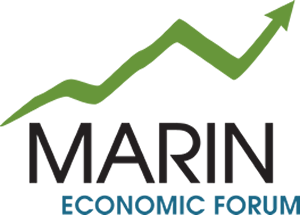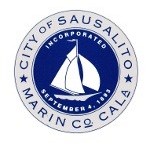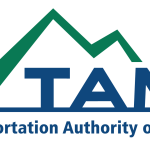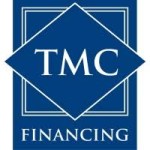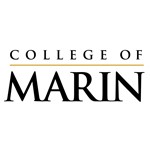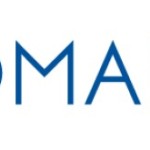MEF Newsletter March 2016
March 2016
 Signs of Progress
Signs of Progress
This month I’d like to briefly highlight two examples of how our economy in Marin continues to grow and progress. The first is the recent testing of the Sonoma-Marin Area Rail Transit (SMART) commuter train in San Rafael. On March 4th, 2016, a two-car SMART train arrived at the San Rafael station. This was a sight not seen in San Rafael for several decades. Over the coming months SMART will be undergoing testing up and down its 70 mile corridor. The Marin Economic Forum is pleased to be involved on a number of SMART working groups, and we will be providing important updates on our website as they occur. When SMART begins operations later this year it will certainly impact our local and regional economy, and we will be working with our partners to promote the usage of SMART by Marin workers, visitors and travelers. For updates and progress reports please visit www.sonomamarintrain.org.
I’d also like to highlight EO Products, the San Rafael-based company that produces personal care products with natural ingredients. EO Products is a great example of a successful Marin-based business that is continuing to grow. The company is looking to upgrade and expand its facilities in San Rafael over the coming years in order to hire upwards of 200 more employees! In addition to its business success, EO Products exemplifies the Marin ideals of community engagement as well as sustainable manufacturing. It is important to take the time to recognize our local businesses that are engaged with our community and working to improve the economic vitality of Marin through expansion and job creation. MEF congratulates EO Products on its continued success!
 Peak Oil and the Oil Peek — By Dr. Robert Eyler
Peak Oil and the Oil Peek — By Dr. Robert Eyler
I actually saw someone clapping at the gas station due to prices that were under $2 a gallon recently, and (of course) those prices went away again. Oil has a wild history in the United States and in world affairs since the automobile was invented, adopted, and spread throughout the world as a mode of transport. The violence by which people and markets have pursued oil interests is well known. In Marin County, many environmental groups focus on peak oil (the idea that we are reaching a global peak of oil reserves that may tip society to a place of adopting new technologies or devolving due to our insatiable appetite for oil and gasoline) as coming attractions when oil prices rise and stay high. Marin County is probably one of the most politically-active places about global petroleum markets per capita, and has some of the highest gas prices of any non-urban area in California.
However, when oil prices drop, there is a direct effect on gasoline prices, and most people directly interact with a commodity called West Texas Intermediate Crude Oil at the pump. Gas prices can take only a wild psychological quality that for an economist creates a simple smile, but can lead to some wild decision-making. When oil prices are moving, and gas prices move with it, we get a real peek at both how those markets work and also how society works. Why do we queue up at gas stations that are 10 cents less a gallon for gas when two other stations down the street have just as good of gas to put in the car and would cost $3-$4 more and not spend 30 minutes waiting for savings. The Costco gas lines in Rohnert Park are a good social experiment on any given Sunday.
There are confounding effects for businesses and governments when gas prices fall. Commuters get a price break, almost like a tax break, which is good for low-wage workers that drive to work. This can mean more people driving rather than carpooling, until natural traffic conditions increase the cost of commuting alone. For businesses, more commuting means less productivity due to being in traffic; using public transportation with good wifi can change that. However, businesses that use oil and gas as inputs (transportation, delivery, and construction are examples) also get a price break. The lower gas prices can also reduce wage demands; when gas prices rise violently, lower-wage workers see the gains above disappear quickly. Generally, society loves lower gas prices, given the last 15 years of prices structurally rising.
The public sector gets hurts on both costs and revenues when gas prices fall. Revenue from the gas taxes fall because they are based on dollar consumption; when prices fall, you spend less at the pump and the tax revenues are less also. That reduces the resources available to fix roads and bridges. At the same time, lower gas prices imply more driving and thus more wear and tear on our roads and bridges and general public infrastructure around driving. Government costs then rise. This is parallel to gains like any other business in terms of what government pays for oil and gas, but most elected officials and their staffs will tell you the public sector hurts from lower gas prices.
As spring continues to show itself in 2016 and we start to drive more on vacation and due to good weather, we should also remember that the currently low gas prices are just that: current. The Chinese economy rebounding and global oil production adjusting may force (along with rising demand nationally) higher prices. The hope is our adoption of new technologies and less fossil-fuel use will structurally change demand; the cruel paradox is that this creates lower price levels and provides a peek at the above effects.
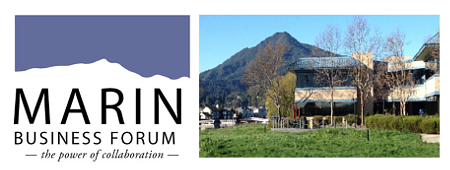
“Background Checks” — by Les Rosen, Esq.
“Employee problems are caused by problem employees.” Attorney Lester Rosen will provide a number of real-world case studies where employers stepped on legal landmines that could have been easily avoided with a safe hiring program. Mr. Rosen is a nationally recognized expert on safe hiring and pre-employment background checks. Previously, he was a criminal trial lawyer in Marin County. He is the author of “The Safe Hiring Manual – the Complete Guide to Employment Screening Background Checks for Employers, Recruiters and Jobseekers.”
Thursday March 24, 2016
5:00 – 7:00 PM
Drake’s Landing Community Room
300 Drakes Landing Road in Greenbrae
The Community Room is adjacent to Jason’s restaurant.

ASK THE LABOR COMMISSIONER
Presented by Roxanne Cornejo
California Deputy Labor Commissioner
The Marin Employment Connection (MEC) is offering a no-cost workshop for local employers on new regulations for wage and hour issues for 2016.
Topics include:
April 6, 2016
9:00am-10:30am
Marin Economic Forum- Downstairs Conference Room
555 Northgate Dr., San Rafael 94903

Saturday, April 30, 2016
10am-3:00pm
Marin County Office of Education
and College of Marin — Kentfield
Jacqueline Freeman Christensen
Senior Vice President, Senior Relationship Manager
City National Bank – Royal Bank of Canada
Commercial Banking, San Francisco North Bay Market
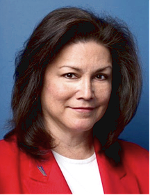 Since 2010 Jacqueline has been a board member of the Marin Economic Forum (MEF). As a board member she was the chair for the Finance Industry working group, member of the Nominating Committee and Construction Development/Commercial Real Estate working group. Just recently she became Treasurer and a member of the Executive Committee.
Since 2010 Jacqueline has been a board member of the Marin Economic Forum (MEF). As a board member she was the chair for the Finance Industry working group, member of the Nominating Committee and Construction Development/Commercial Real Estate working group. Just recently she became Treasurer and a member of the Executive Committee.
Jacqueline chose to become a member of MEF to participate in the economic growth and improvement of the county. She lives and works in Marin and wants to help in whatever way she can to see improvement and believes that MEF is the vehicle communicate and get this message out there.
In addition, Jacqueline has been a member of the Tiburon-Belvedere Rotary as former Secretary, former Treasurer and President Elect. She was formerly on the Board of the San Francisco LEAD (Leadership, Education Advocacy Development) for Women.
Jacqueline had recently retired from 36 years at Bank of America Merrill Lynch where she served as a SVP & Senior Relationship Manager supporting Marin, Napa, and Sonoma Counties. She managed a seasoned portfolio of commercial clients with annual revenues $10 million to $100 million. Jacqueline’s careers with Bank of America included management and sales positions in Consumer Banking, Private Banking, Corporate Real Estate and Commercial Banking.
Following her retirement, she was made an offer she could not refuse in again working with her former manager; Rod Banks, EVP Head of Commercial Banking for City National Bank – Royal Bank of Canada as of August 2015. As a Senior Vice President, Senior Relationship Manager, Commercial Banking Middle Market, Jacqueline manages commercial relationships of companies with annual revenues that range from $25 – $350 million. Jacqueline is the primary bank advocate and key financial advisor for the client; accountable for new business and enhancing existing relationships. In this position she advises companies on their various commercial banking needs; credit, treasury management, 401k, leasing, merchant services, sale or purchase of company, to name a few.
Jacqueline has been a top producer rated in the top 5% of the 600 Commercial Client Managers in the nation for 5 years. She enjoys giving back to her community, through organizations, events and volunteering. She lives in Novato with her husband Dr. Robert Christensen. She enjoys cooking to relax and they both enjoy travel, golf, tennis, walking and riding bikes.

March
April
